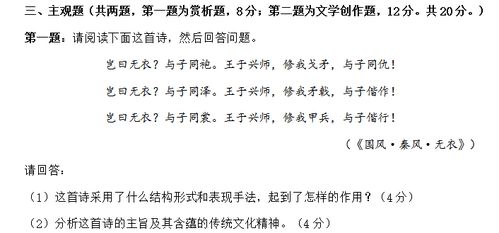英语文学阅读英文
Exploring Literary Terms in English Literature
English literature is a rich tapestry woven with various literary devices, techniques, and terms that enhance the beauty and depth of texts. Whether you're a seasoned scholar or a budding enthusiast, understanding these literary terms can greatly enrich your reading experience. Let's delve into some key literary terms frequently encountered in English literature:
Imagery refers to the use of descriptive language that appeals to the senses—sight, sound, taste, touch, and smell. Through vivid imagery, writers create a mental picture that evokes an emotional response from the reader. For example, in William Wordsworth's poem "Daffodils," the line "A host, of golden daffodils" conjures a visual image of a field filled with bright yellow flowers, invoking a sense of joy and serenity.
Symbolism involves the use of symbols to represent ideas or concepts beyond the literal meaning. These symbols can be objects, actions, or even characters that carry deeper significance. In George Orwell's novel "Animal Farm," the farm itself symbolizes a microcosm of society, while the character of Napoleon represents totalitarianism.
Alliteration is the repetition of initial consonant sounds in neighboring words or syllables. It is often used to create rhythm, emphasize certain words, or evoke a particular mood. For instance, in the line "Peter Piper picked a peck of pickled peppers," the repetition of the "p" sound adds a playful and rhythmic quality to the sentence.

A metaphor is a figure of speech that equates two seemingly unrelated things, highlighting their similarities to convey a deeper meaning. Unlike similes, which use "like" or "as" to make comparisons, metaphors assert a direct relationship between the two elements. In Shakespeare's famous line "All the world's a stage," life is metaphorically compared to a theatrical performance, emphasizing its transient and dramatic nature.
Foreshadowing is a literary device wherein an author hints at future events or outcomes in a story. It builds suspense and anticipation, engaging readers by inviting them to speculate on what may happen next. For example, in J.K. Rowling's "Harry Potter" series, the presence of the dark wizard Voldemort's lingering threat throughout the early books foreshadows the epic confrontation that unfolds in the later installments.
Irony is a discrepancy between what is expected and what actually occurs. It can manifest in various forms, such as verbal irony, situational irony, or dramatic irony. Verbal irony involves saying the opposite of what is meant, while situational irony occurs when the outcome of a situation is contrary to what was expected. In Oscar Wilde's play "The Importance of Being Earnest," the characters often say one thing while meaning another, leading to humorous misunderstandings.
A theme is a central idea or message that pervades a literary work. It provides insight into the human condition, societal issues, or universal truths explored by the author. Themes can be explicit or implicit and are often open to interpretation. In Harper Lee's novel "To Kill a Mockingbird," the theme of racial injustice is woven throughout the narrative, challenging readers to confront issues of prejudice and morality.
Personification attributes human characteristics to nonhuman entities, animating them to create vivid imagery and enhance storytelling. By imbuing inanimate objects or abstract concepts with human traits, writers can evoke empathy and emotional resonance in readers. For instance, in William Blake's poem "The Tyger," the tiger is personified as a powerful and aweinspiring force of nature.
An allegory is a narrative that operates on two levels: a literal level and a symbolic level. While the surface story may appear straightforward, it contains deeper allegorical meanings that comment on broader themes or issues. John Bunyan's "The Pilgrim's Progress" is a classic allegory that follows the journey of Christian as he seeks salvation, with each character and obstacle representing spiritual challenges.
An epiphany is a moment of sudden realization or insight experienced by a character in a literary work. It often marks a turning point in the narrative, leading to personal growth or a shift in perspective. James Joyce's short story "Araby" culminates in the protagonist's epiphany as he recognizes the disillusionment of his romantic idealization.
These are just a few of the many literary terms that enrich the landscape of English literature. By familiarizing yourself with these terms and recognizing their usage in texts, you can deepen your appreciation and understanding of literary works across genres and time periods.











